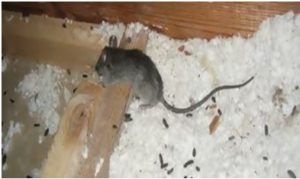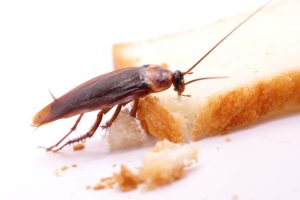Common winter pests like raccoons, cockroaches, rats, and mice will enter your home seeking warmth and food. They’re terrible house guests and can cause the following issues:
- Raccoons, squirrels, rats, and mice can cause structural damage to drywall, furniture, and personal items
- They can chew through electrical wires and create fire hazards
- Rodents, raccoons, and cockroaches can contaminate food and spread bacteria and pathogens to humans
- Cockroach allergens are known to trigger allergies and exacerbate asthma symptoms, especially in children.
- All these pests can spread diseases like tapeworms, hantavirus, salmonellosis, and rabies to humans
What precautions can you take to protect your home from winter pests?
- Mice can fit through a hole the size of a dime and rats through a hole the size of a quarter
- Be sure to seal cracks and holes with caulk, steel wool, or copper mesh
- Keep basements and attics dry after heavy rain to avoid pests making the damage worse
- Be on the lookout for signs of mice and rats such as droppings, gnaw marks, and damaged food containers.
- Also check for greasy rub marks on walls Eliminate all sources of moisture
- Keep counters and floors free of crumbs and take out the garbage frequently Inspect under appliances and sinks for cockroach activity
- Keep trashcans and recycling bins tightly sealed or locked in a building to keep animals out
- Cover exposed chimneys or other openings with caps or mesh covers to prevent entry
- Trim tree branches to avoid creating a bridge for squirrels and raccoons to access your home
- After harsh winter weather, check vulnerable spots in the home such as the roof and doors for damage
- Repair damage and replace missing shingles and vent covers right away
A House Mouse in the House

House mice are very small pests and are sometimes seen as being “cute”. They can cause big problems in your home and are not a wild creature you want to grow friendly with. In fact, for their size, mice are one of the most destructive rodents. Their tiny bodies are an advantage in the type of damage they because they have potential to cause hidden damage within walls and in small spaces that are hard for the homeowner to get to. House mice are constant chewers and will chew through insulation, drywall, flooring, and wires (which becomes a fire hazard). Homeowners may also notice that belongings such as pictures, books, clothing and furniture are chewed as well. Where there are mice, there are also mouse droppings and urine, which will contaminate insulation and other building materials, not to mention possessions. And as if the damage they cause isn’t bad enough, mice can spread diseases such as salmonellosis and dysentery, and expose you and your family to fleas and ticks. Universal Pest & Termite offers complete rodent protection as well as a no hassle guarantee. If the rodents come back, so will we, free of charge. Check out the Universal Pest & Termite Fall | Winter Pest Invaders Blog.
How Cockroaches Get Inside

Cockroaches get into homes in several ways, whether it be by their own scuttling about or our lack of attention. Being aware of where and how cockroaches may invade is a great way to be alert and help prevent them from getting inside in the first place.
Common ways cockroaches enter Virginia Beach, Chesapeake, Norfolk homes include:
- Gaps in your foundation.
- Damaged window or door screens.
- Doors without door sweeps.
- Stored boxes that we bring inside (whether it be a box ordered online, those from the grocery store, etc.).
- Holes made for utilities like piping and wires.
- Through windows that are not properly installed.


